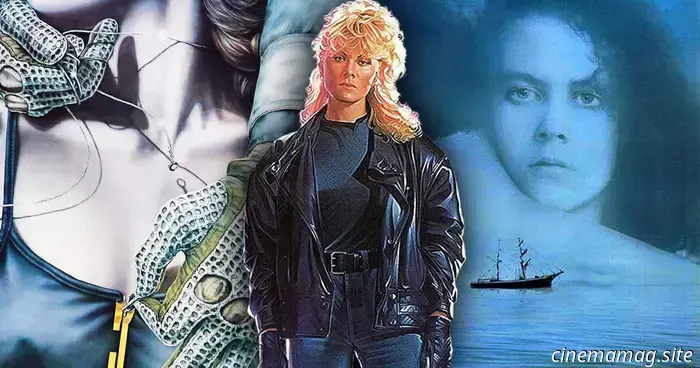
6 Excellent Australian Crime Films from the 1980s
Casey Chong presents six exceptional Australian crime films from the 1980s for your viewing pleasure.
The crime genre in Australia’s cinematic history dates back to 1906 with the world’s first feature-length film, The Story of the Kelly Gang. By the 1980s, Australian cinema had transformed, with filmmakers like Philip Noyce and Richard Franklin discovering fascinating approaches to crime storytelling. Here are six outstanding crime films from the 80s to add to your watchlist.
**Heatwave (1982)**
Before Philip Noyce transitioned to Hollywood, he directed Heatwave, a grim crime drama inspired by the real-life case of Juanita Nielsen, who vanished in 1975. The character based on her is called Mary Ford, portrayed by Carole Skinner, who plays a supporting role rather than being the main focus. The title refers to the oppressive summer heat in Sydney, which parallels other troubling issues in the community.
The plot centers on Kate Dean (Judy Davis, delivering a captivating performance) as she leads protests alongside newspaper editor Mary Ford against the demolition of homes in favor of a new housing development. Noyce, who co-wrote the screenplay, ambitiously weaves together various storylines, including that of the project’s architect, Stephen West (Richard Moir), who unexpectedly becomes involved with Kate. This allows Noyce to examine themes such as corruption, the murder mystery of Mary’s disappearance, social injustice, and capitalism, all depicted with a blunt, unvarnished style that aligns with the film's harsh realities.
**Shame (1988)**
Shame marks Steve Jodrell’s sole feature-length directorial effort before he transitioned to television, but it left a lasting impression on Australian cinema. The film follows Asta Cadell (played by the assertive Deborra-Lee Furness), a motorcycle-riding barrister from Perth determined to confront the sexual assault injustices plaguing a small town, an issue that remains relevant today. Among the victims is Lizzie (Simone Buchanan), a teenage girl who is gang-raped while the police remain inactive and the locals turn a blind eye.
Rather than exploit the sensitive subject, Jodrell focuses on a grounded, feminist perspective through Asta’s character, who is far from a typical damsel in distress. She stands up to her harassers, defending herself and resorting to violence only when necessary. Furness's powerful performance carries this bleak and somber crime narrative.
**Road Games (1981)**
Richard Franklin infuses Road Games with a Hitchcockian flair in this road movie, featuring Stacy Keach as a truck driver transporting frozen meat across Nullarbor Plain. Accompanied only by his pet dingo, he spends his journey observing other drivers and fabricating stories about them. Like Hitchcock’s flawed protagonists, Keach’s Pat Quid is a complex anti-hero, portrayed with humor and charm.
The film also stars Jamie Lee Curtis as a hitchhiker, entwined in a murder plot involving a serial killer. Franklin skillfully examines the paranoia surrounding Pat's suspicion of a green van's driver, adding layers to the narrative as Pat's sleep deprivation and long-haul job lead to uncertainty about what is real. This tension keeps viewers engaged, rooting for Keach’s endearing character.
**Blood Money (1980)**
This low-budget crime film runs just 62 minutes and features a straightforward yet impactful premise: aging criminal Pete Shields (a world-weary John Flaus) learns he has terminal cancer. Instead of taking it easy, he returns to Melbourne to reconnect with his family (including Bryan Brown as his younger brother) while attempting to execute one last heist.
While Flaus is a standout, Brown is commendable as the criminal trying to redeem himself. Writer-director Christopher Fitchett maximizes the limited budget with surprisingly effective set pieces, especially the violent robbery scene early in the film. The tone remains cynical from beginning to end, leading to a grim finale.
**Grievous Bodily Harm (1988)**
Mark Joffe’s AFI-nominated Grievous Bodily Harm revolves around three interlinked characters: an emotionally troubled schoolteacher (John Waters) who believes his wife is still alive; a crime journalist (Colin Friels) intrigued by a serial murder case; and a determined detective (Bruno Lawrence) who prefers unconventional methods.
While the complex narrative can be confusing, Joffe, making his feature directorial debut after a background in music videos and television, maintains suspense and intrigue effectively. The primary cast delivers strong performances, particularly Waters as a character on the brink of a psychological breakdown. The film also features an emerging Joy Bell in a sultry role as the schoolteacher’s supposedly deceased wife.
**Dead Calm (1989)**
Philip Noyce's Dead Calm stands out as his most acclaimed Australian thriller, featuring a stellar cast including







Other articles
 The contentious horror film The Bunny Game is set to be released on Blu-ray by Jinga Films.
Jinga Films has officially revealed a new Blu-ray and DVD release in the United States for The Bunny Game, the provocative 2011 exploitation horror film directed by Adam Rehmeier and co-written by and starring Rodleen Getsic. Jinga is well-acquainted with controversy, having been the global sales agent for A Serbian Film, although that film succeeded in […]
The contentious horror film The Bunny Game is set to be released on Blu-ray by Jinga Films.
Jinga Films has officially revealed a new Blu-ray and DVD release in the United States for The Bunny Game, the provocative 2011 exploitation horror film directed by Adam Rehmeier and co-written by and starring Rodleen Getsic. Jinga is well-acquainted with controversy, having been the global sales agent for A Serbian Film, although that film succeeded in […]
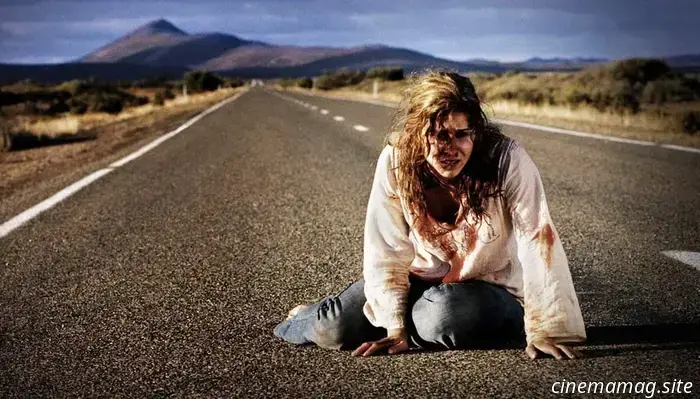 Wolf Creek announces a special limited edition release of 4K Ultra HD to mark its 20th anniversary.
To commemorate the 20th anniversary of Wolf Creek, Imprint Films has revealed a limited edition 4K Ultra HD release of the 2005 Australian cult classic horror film. With only 1500 copies up for grabs, the 4K edition is currently available for pre-order and will be released on September 24th. Take a look at the cover artwork, details, and trailer below… […]
Wolf Creek announces a special limited edition release of 4K Ultra HD to mark its 20th anniversary.
To commemorate the 20th anniversary of Wolf Creek, Imprint Films has revealed a limited edition 4K Ultra HD release of the 2005 Australian cult classic horror film. With only 1500 copies up for grabs, the 4K edition is currently available for pre-order and will be released on September 24th. Take a look at the cover artwork, details, and trailer below… […]
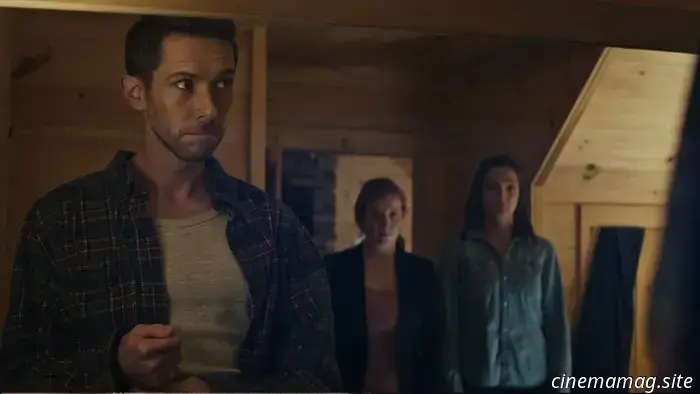 Sight Unseen: The Reason We Invested Our Wedding Budget into Creating Our Horror Film
Oriana Schwindt and Stephen Parkhurst are a married couple working in filmmaking, residing in New York City. Their debut feature film, the haunted house movie Sight Unseen, is a
Sight Unseen: The Reason We Invested Our Wedding Budget into Creating Our Horror Film
Oriana Schwindt and Stephen Parkhurst are a married couple working in filmmaking, residing in New York City. Their debut feature film, the haunted house movie Sight Unseen, is a
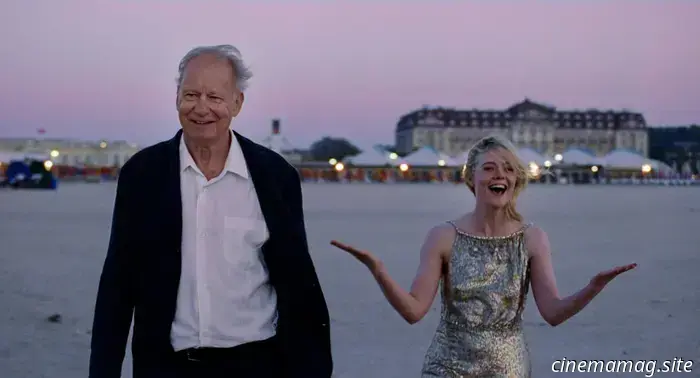 Neon has released a trailer for "Sentimental Value," featuring Renate Reinsve, Stellan Skarsgård, and Elle Fanning.
Neon has released a trailer for Sentimental Value, the drama that won the Cannes Grand Prix, written and directed by Joachim Trier. The film brings together the filmmaker with Renate Reinsve from The Worst Person in the World, who stars alongside Stellan Skarsgard, Elle Fanning, Inga Ibsdotter Lilleaas, and Corey Michael Smith. It focuses on two sisters trying to mend their complex [...]
Neon has released a trailer for "Sentimental Value," featuring Renate Reinsve, Stellan Skarsgård, and Elle Fanning.
Neon has released a trailer for Sentimental Value, the drama that won the Cannes Grand Prix, written and directed by Joachim Trier. The film brings together the filmmaker with Renate Reinsve from The Worst Person in the World, who stars alongside Stellan Skarsgard, Elle Fanning, Inga Ibsdotter Lilleaas, and Corey Michael Smith. It focuses on two sisters trying to mend their complex [...]
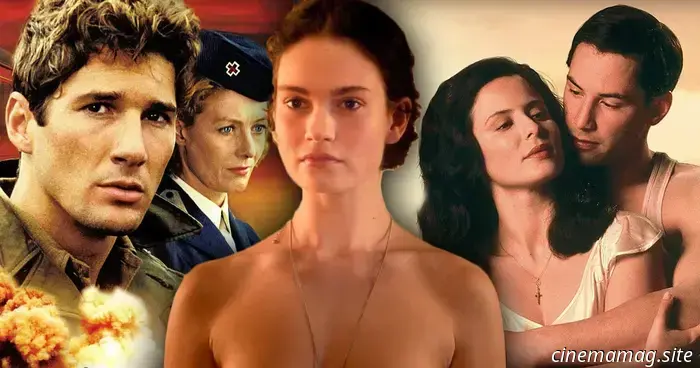 7 Overlooked Romance Films Set in World War II
Casey Chong offers a curated list of lesser-known romance films from World War II to consider for your viewing. This global conflict has prompted numerous filmmakers to examine it through various lenses, with one notable angle being the love stories that unfold amidst the devastation of war. Iconic and frequently discussed films such as Casablanca, […]
7 Overlooked Romance Films Set in World War II
Casey Chong offers a curated list of lesser-known romance films from World War II to consider for your viewing. This global conflict has prompted numerous filmmakers to examine it through various lenses, with one notable angle being the love stories that unfold amidst the devastation of war. Iconic and frequently discussed films such as Casablanca, […]
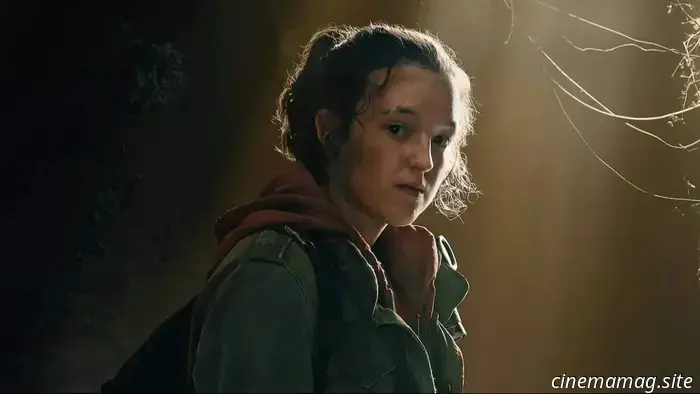 Neil Druckmann, co-creator of The Last of Us, is taking a step back from his creative role for season 3.
HBO's The Last of Us is anticipating changes for its third (and possibly final) season – not just in terms of story, as the attention is likely to move from Bella Ramsey's Ellie to Kaitlyn Dever's Abby, but also in the production team, with Naughty Dog's Neil Druckmann revealing that he will no longer serve as co-showrunner for the series. [...]
Neil Druckmann, co-creator of The Last of Us, is taking a step back from his creative role for season 3.
HBO's The Last of Us is anticipating changes for its third (and possibly final) season – not just in terms of story, as the attention is likely to move from Bella Ramsey's Ellie to Kaitlyn Dever's Abby, but also in the production team, with Naughty Dog's Neil Druckmann revealing that he will no longer serve as co-showrunner for the series. [...]
6 Excellent Australian Crime Films from the 1980s
Casey Chong presents six fantastic Australian crime films from the 1980s for your viewing list… The crime genre in Australian filmmaking dates back to 1906, starting with the world’s first feature-length film, The Story of the Kelly Gang. By the 1980s, Australian cinema had undergone considerable transformation, leading to a new era with [...]
